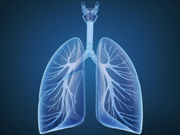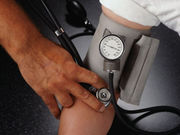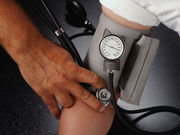Tag: Blood Pressure
AHA: Target Organ Damage From HTN Also Seen in Teenagers
Sixteen percent of teenagers had left ventricular hypertrophy with SBP below the 95th percentile
Younger Adults, Especially Men, Lag in HTN Treatment, Control
Only four in 10 with the condition get it under control, researchers say
Tidal CO2 Prognostic for Chronic Thromboembolic Pulmonary HTN
ETCO2 dichotomized at 29 mm Hg significantly associated with reduced overall survival
Intensive BP Treatment Appears Safe, Well Tolerated
Second study finds intensive systolic blood pressure control is also cost-effective
Pattern of Stressor-Evoked Brain Activity Can Predict BP Reactivity
Multivariable pattern was identified in training sample; predicts systolic and diastolic BP reactivity
Collaborative Communication Could Improve HTN Rx Adherence
Clinicians in low-income neighborhoods should ask about employment, relationships, researchers say
Lower SBP Target for Blacks May Benefit Cognitive Function
Researchers find that healthy reductions may benefit blacks even more than whites
AAP Issues New Guidelines for ID, Treatment of HTN in Children
Simplified tables from American Academy of Pediatrics likely to raise detection rates
Intensive Blood Pressure Tx Aids Those With Prediabetes
Beneficial effects seen for cardiovascular disease outcomes, all-cause mortality
Marijuana Use May Up Risk of Hypertension-Related Mortality
Increased duration of marijuana use tied to increasing risk of death from hypertension














